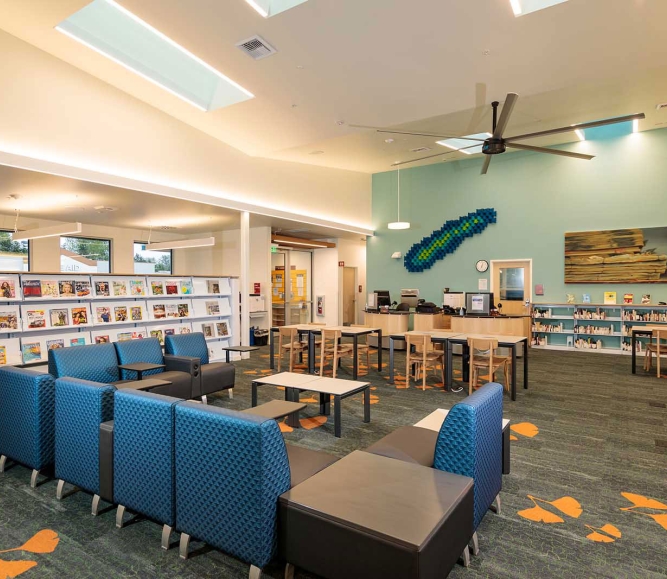County book club links local population, local interests
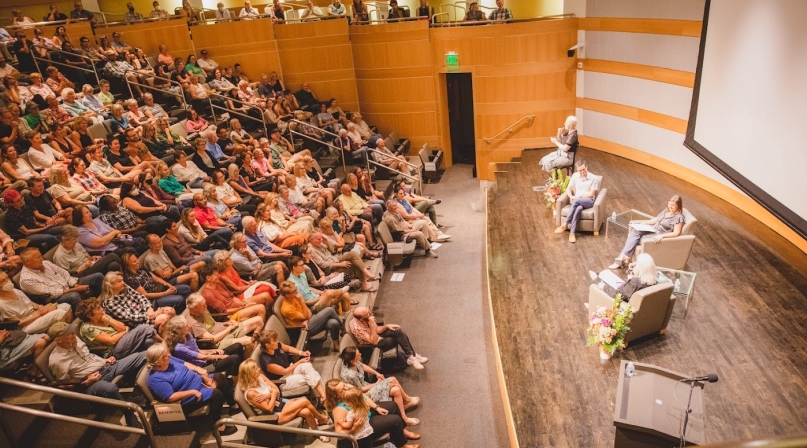
Key Takeaways
As Salt Lake County, Utah emerged from COVID-19, Mayor Jenny Wilson worried that the pandemic’s social legacies of isolation and community fragmentation were on track to continue.
Holding conversations about shared local interests, however, could capitalize on her county’s natural and cultural features and people’s curiosity, so she started a book club of sorts.
“I was really hoping to come up with something that would not be always so political, but instead topics that are issue-driven and that would unite the community,” Wilson said. “Like a lot of county electeds, I was really trying to figure out what this kind of post-COVID world looks like as it relates to community engagement, while keeping in mind what can be divisive.”
The book club’s debut coincided with the NBA All-Start Game in February 2023 at Vivint Arena in Salt Lake City. The county had partnered with the Utah Jazz basketball team to conduct community programming and Wilson saw that opportunity to capture local interest in the game.
The Salt Lake County Library system made 46 copies of Jacki MacMullan’s “Basketball: A Love Story,” for loan and Wilson conducted a community book discussion in conjunction with the All-Star Game weekend, with plenty of input from former Jazz coach Frank Layden.
“It’s an account of basketball’s history — the good, the bad and the ugly,” she said. “I took a lot from it that I’ll be able to use as the mother of a basketball player. It gave me this great perspective that’s allowed me to have conversations with my son about how the sport isn’t all about which NBA player hit 50 points tonight or did the Jazz win or lose. There’s more about the journey of the player and the background in that, that we don’t always see.”
The county managed to draw journalist and Salt Lake County native Terry Tempest Williams for the second convening to discuss her New York Times article “I am Haunted by What I Have Seen at the Great Salt Lake,” addressing the degradation of the environment in and around the Great Salt Lake.
“It’s a topic that’s incredibly relevant locally and one that’s going to have long-lasting repercussions for the region,” Wilson said. “People were haunted by what Williams wrote and the incredible photographs that accompanied the article.”
The lake’s shrinking has been so gradual, and hard to perceive from a local perspective, given its size, that while Williams’ article wasn’t necessarily a wake-up call for most Salt Lake County residents, she was able to supply crucial context about the lake’s changes and the consequences they presented.
The book club left the library for a discussion at the observatory in conjunction with the annual solar eclipse.
In keeping with the times, the “book club” relaxed its media style and introduced a short film, “Eclipse: The Sun Revealed,” which examined the history and science behind eclipses, and safe viewing procedures.
“We’re looking at history and relevant themes, like the great Salt Lake for example, taking advantage of film and the eclipse and we’re trying to be as creative as possible and keep it relevant to the county residents,” Wilson said. “I would love to pick material that’s relevant. It doesn’t always have to be recently published, but I want to get the authors involved whenever that’s possible.”
Wilson is aiming to capitalize on the stories of migrants who have settled in Salt Lake County in the book club’s next meeting, distributing copies of a book about refugees who have settled there, which the county’s Office of New Americans produced.
She also hopes to touch on the history of World War II-era Japanese internment in Utah, with a potential bus trip to an internment camp museum.
“One of our goals is to have local voices shared through this opportunity,” she said. “There’s just an abundance of talent here in Utah.”
Salt Lake County plans to hold three or four book club meetings per year, but Wilson suggested that if other counties want to follow suit with their own “book clubs,” the best approach she has found is to work backwards while scheduling the meetings.
“We don’t want to be so backed into the time frames around executing some of this, so we lose our ability to get the right host, like with Terry Tempest Williams,” Wilson said. “Figure out when the author is available and then work backwards. That level of flexibility is really important. It would be too much to do this every month, yeah, but three or four times a year it’s been a good goal for us.”
Related News
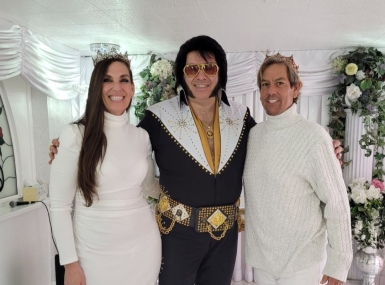
Clark County celebrates its 'wedding capital' fame
The county is creating a museum to one of its most famous industries, one that will collect and share the stories of couples who got married there.
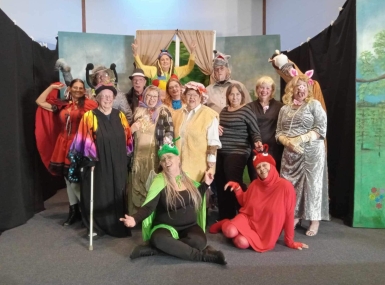
Senior stars give theater program a standing ovation
Saline County, Kan. started a theater group for senior citizens who enjoy performing and working behind the scenes on theater productions.
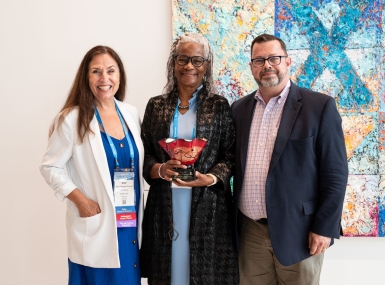
Public Leadership in the Arts Award goes to Mobile County commissioner
Surrounded by her peers Saturday, July 13, Mobile County, Ala. Commissioner Merceria Ludgood received the Public Leadership in the Arts Award from Americans for the Arts at a reception held at the Tampa Museum of Art during the NACo Annual Conference.
County News
County libraries respond to e-book embargo
